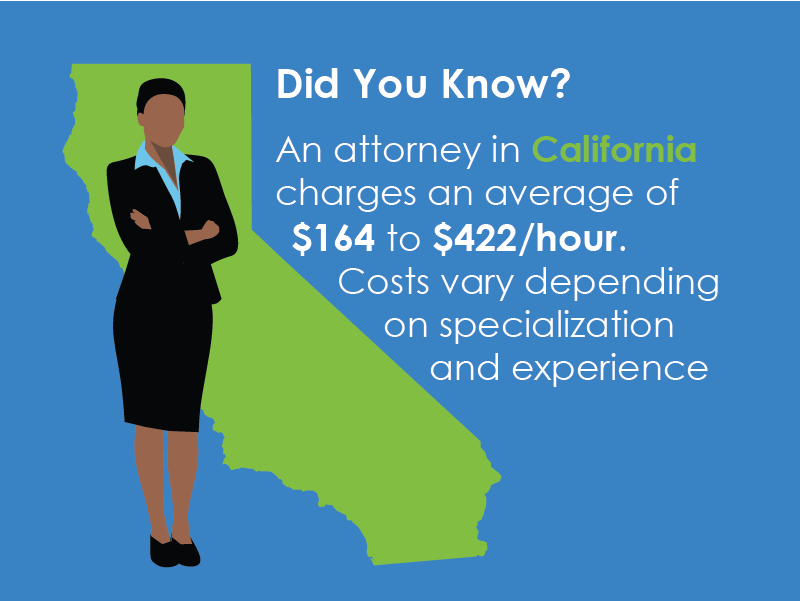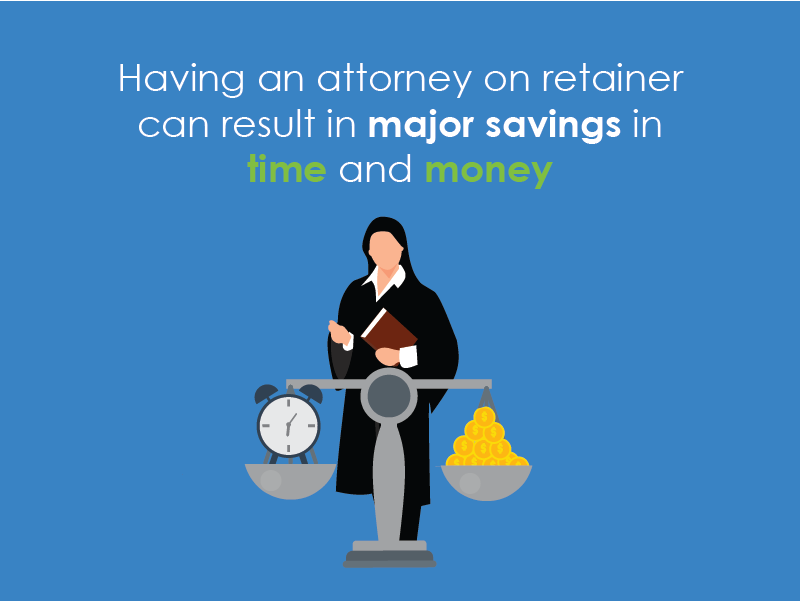HOAs are governed by an elected board of directors who are responsible for enforcing rules and managing the development. Associations may also hire a property manager to help with day-to-day operations and owner relations. However, there will come a time when the HOA encounters a complex problem that requires the help of an attorney to resolve. In this article, we’ll look at why HOAs need attorneys, and how they can find one.
Download our 10 FAQs asked by HOA Board Members and answered by an HOA attorney
Every HOA will need an attorney at some point
Every company, no matter how big or small, needs an attorney at some point. Attorneys (sometimes referred to as lawyers) do more than defend organizations when they get into legal trouble. They inform individuals and businesses of their rights and obligations, interpret rules and prevent people from drifting over to the wrong side of the law. They may even be able to resolve problems so that parties don’t have to go to court. For all these reasons and more, HOAs need attorneys just like any other business would.
1. Interpreting governing documents and laws
As legal associations, HOAs are bound by their governing documents, as well as federal, state and local laws. The governing documents can be hard to understand since the current board likely played no part in writing them. HOA attorneys can explain and interpret vague or complex rules. For example, an association law attorney could help a board decipher a clause that doesn’t clearly explain if a certain maintenance responsibility must be assumed by the association or the owner of the home.
2. Amending rules and governing documents
An HOA attorney can also help with making changes to governing documents. As time passes and the community evolves, some rules and processes may no longer serve the owners the way they once had. Similarly, an older bylaw may now conflict with a new state law. In these cases, an attorney can ensure the amendment process is done correctly and the new rule is legal and enforceable. The attorney can also ensure proper wording of any changes to minimize the risk of liability and confusion.
3. Payment collection
Unfortunately, there are times when an HOA will need legal assistance in order to collect assessments from an owner. Most HOA boards have certain powers they can use to collect delinquent dues, but sometimes, these enforcement procedures are still not enough. If the board chooses to take further action—such as file a lawsuit or place a lien on the property—it will need the help of an attorney.
4. HOA representation
The HOA’s governing documents list the fiduciary responsibilities of the board. If an owner challenges a board about how well it has been fulfilling its obligations, homeowners may take legal action. The board of directors would then need legal representation.
The need for a lawyer isn’t limited to an alleged breach of fiduciary duty, either. Owners may try to sue the association or the HOA board if they are very unhappy with something. In these cases, the association would need an attorney to defend the HOA.
5. General HOA matters
New problems come up all the time, especially in bigger associations with lots of people. In some situations, the board may not know what to do next. Experienced HOA lawyers have seen it all and can help guide boards through disputes, property matters, privacy and surveillance questions, meeting processes, and more.
Of course, before you retain an attorney, the association must vet them as it would any other vendor. Call the law firm, assess their communication abilities and ask about the specifics of their retainer agreement. Some experts even encourage board members to go visit their office in person so that they can meet the team they’ll be working with.
Hourly rates
Attorneys are not cheap. Their job is highly specialized, so, since demand is high but supply is relatively limited, they can charge a lot. HOAs can pay a lawyer by the hour, but rates vary quite a bit depending on the firm, the attorney, your location and the nature of the problem.

A lawyer in California charges anywhere from $164 to $422 per hour (this is for all types of lawyers, not just association lawyers). Costs vary depending on the type of lawyer. Similarly, a lawyer working in Maryland can charge as little as $188, and as much as $447 per hour.
Most law firms won’t share their rates on their website, but Bartzen Rosenlund Kasten, which specializes in association law, has shared that it charges $250 to $375 per hour. This firm, like others, offers both a flat-fee rate and a monthly retainer package (which includes unlimited attorney phone calls and emails related to common association legal issues).
Since most HOA issues will take more than an hour or two to resolve, associations tend to invest in a more economical option.
Having an attorney on retainer can result in major savings
There is a difference between a retainer and having an attorney on retainer. An HOA will need to sign a retainer agreement when they hire a lawyer. Retainer agreements typically state the basic expectations of the contracting parties, including hourly rates, additional fees and expenses, the purpose for representation and any required retainer deposit. It’s common practice for lawyers to ask for a retainer up front before they start doing work. They will return any leftover amount to you if the work costs less than the retainer deposit paid. But, having an attorney on retainer means that the HOA is paying an ongoing fee (perhaps an annual fee) and can call on the lawyer whenever it needs them.
Having a lawyer on retainer can cost an HOA thousands of dollars each year, and not every HOA needs frequent access to a lawyer. If you do find that your association is consulting with an attorney more than once per month, then having a lawyer on retainer can actually save the community money and time.

Immediate access to legal counsel
With an attorney on retainer, your HOA can talk to a legal expert and ask questions without racking up hourly fees. If you get unlimited calls, you can ask about anything that might have legal consequences, including voting, contracts, rule enforcement and more.
Legal representation before you need it
All too often, HOAs wait until they are called to court to reach out to an attorney. This creates urgency, which forces the HOA to hire the first lawyer available. Urgent cases also cost the association more money (lawyer fees are going to be very high for this type of work). But with an attorney on retainer, you have someone who already knows your community. They may be able to help the HOA avoid court altogether.
HOAs still need invoices from their law firm
Even if you have a lawyer on retainer, the firm should provide detailed monthly statements describing all work performed and how much it costs. When it comes time to renew your contract, these invoices can help you determine if the law firm is providing the association with the best value for what it’s being paid.
Should you negotiate a retainer agreement?
Regardless of whether the board retains a lawyer for a short time, or has one on retainer, members should be aware that it is possible to negotiate rates. This can be a bit nerve-racking since lawyers argue for a living, but it’s definitely worth talking about rates.
Not only does the board have a duty to read the agreement and thoroughly understand its terms before signing, but it should also seek the best rates. That’s not to say the HOA should go with the least expensive law firm (in fact, it’s almost always better to pay more for an experienced attorney), but it should ask about paying a lower rate, especially if it is retaining the lawyer for a long period of time.
Ask lots of questions
Before signing or renewing an agreement, be sure to ask about anything you don’t understand. If the agreement is complicated, the board should hire independent counsel to review the contract before it is signed. Often, details are missed relating to what happens if something unpredictable occurs, or the association must attend trial.
Understand the difference between billable and nonbillable hours. Ask if the firm charges for basic emails and phone calls, if it charges special rates for travel and if mailing costs are charged separately.
Finally, if you are renewing a contract, compare and evaluate any changes from previous versions of the document.
Finding an attorney
If your HOA wants to ensure it’s getting a skilled association law attorney, there are a few avenues it can explore. Your management company will likely have a relationship with one or more law firms in the area, and could give you a recommendation.
Another good place to look is the service directory of your local chapter of the Community Associations Institute (CAI). All of the lawyers listed here are members of the organization, and have experience in association law.
Word of mouth is the oldest and most valuable way to find a service provider such as a lawyer. Ask friends or other associations about good and bad experiences they’ve had with a particular firm.
Useful Resources:






















